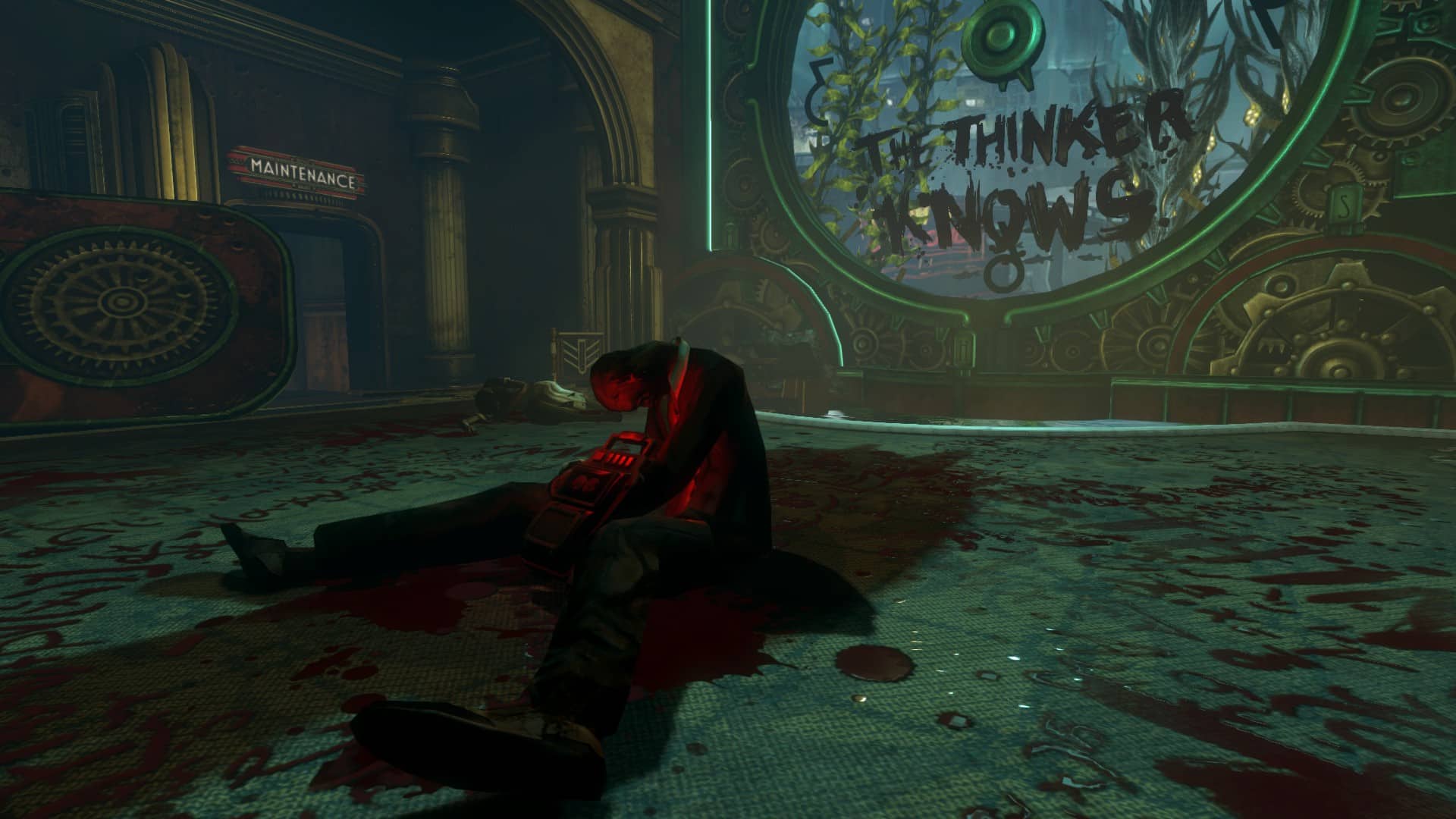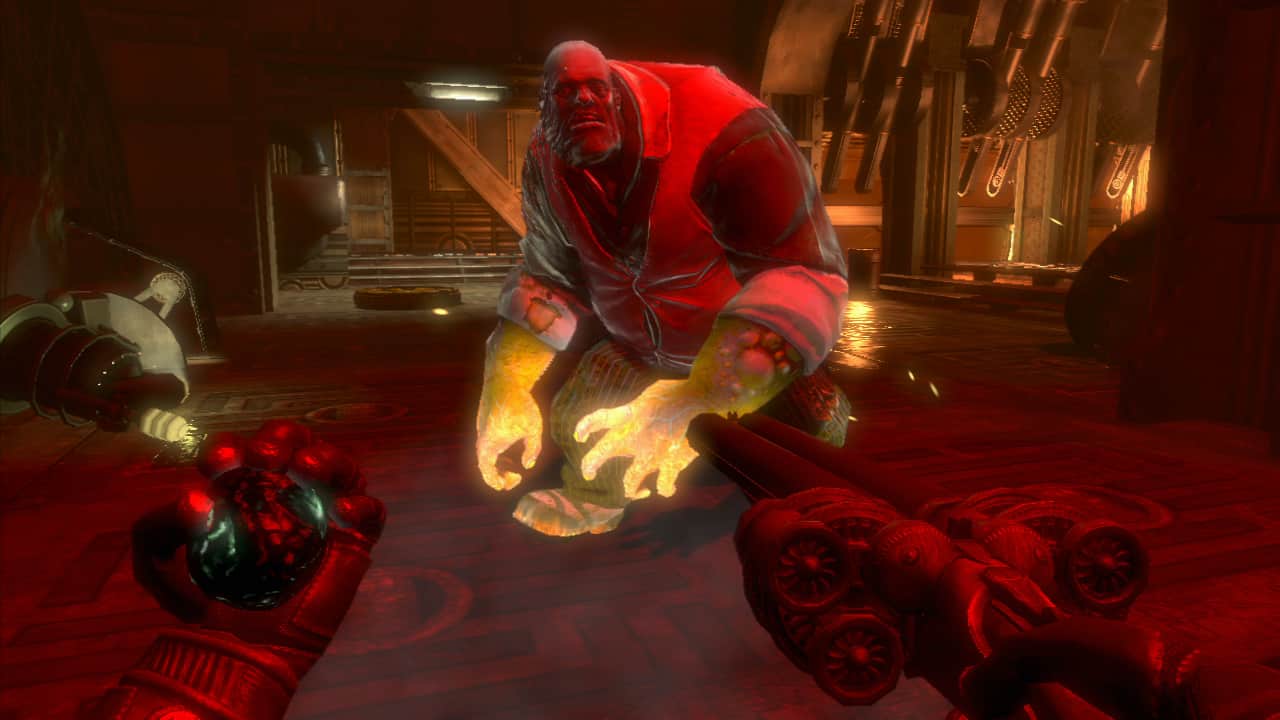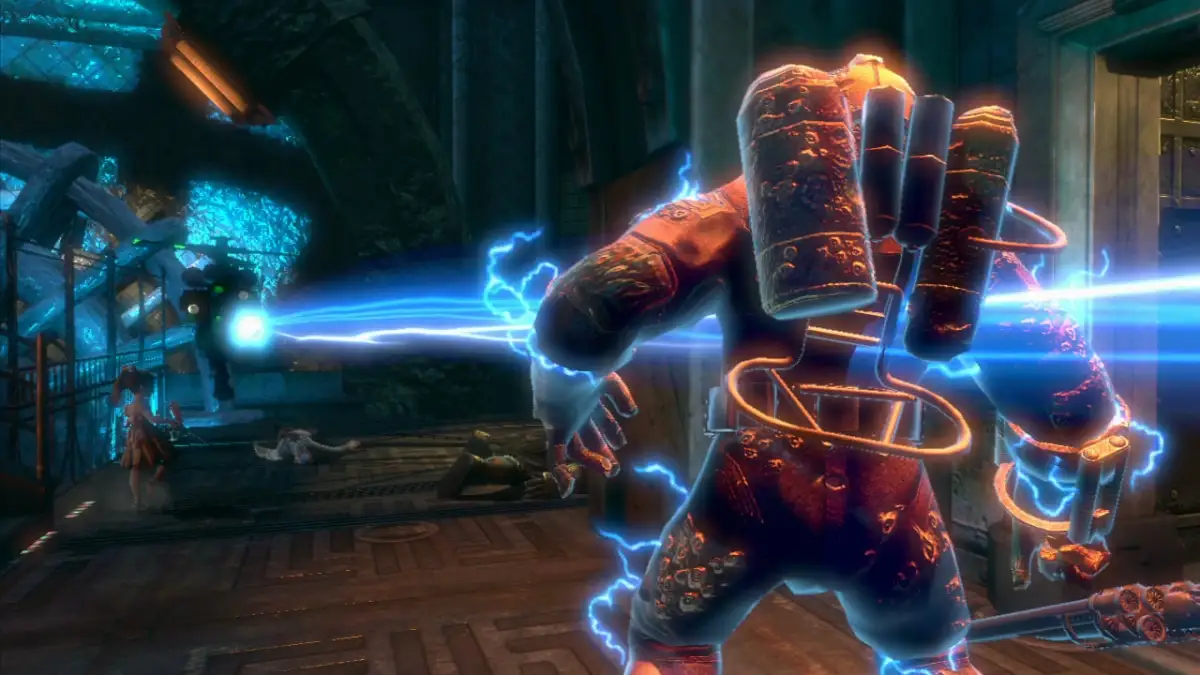This article contains spoilers for BioShock 2: Minerva’s Den.
Like its predecessors, the BioShock 2: Minerva’s Den DLC is set in the failed underwater utopia of Rapture. You play as a Big Daddy, one of the hulking protectors for the city’s corpse-harvesting children.
The core premise of the story is straightforward: Charles Milton Porter and Reed Wahl were two computer engineering colleagues that built the Thinker, a supercomputer that runs many of the processes in Rapture. As time went by, they became obsessed with the Thinker and turned on each other. Reed Wahl now believes its calculation capabilities will unlock the secrets of the universe for him. Meanwhile, Porter injected the personality of his dead wife into the machine and wants you to rescue it from Rapture.
As the story goes on, things get much more complicated. Early on you find out that Porter experimented with voice modulation for the Thinker and that the machine may be self-aware. You also learn that Wahl framed Porter, and Porter was disappeared by Rapture’s secret police. Eventually you discover that men who are removed in this way usually have their memory wiped and come back as Big Daddies.
All the information you need to work out the ending is gradually placed in front of you. And yet it is still a shock to learn that the Big Daddy you are playing as is in fact Porter. The voice you’ve been hearing over the radio that you thought was Porter’s is actually the Thinker’s, modulated to sound like him. And the reason the Thinker is helping you is because it is aware of itself as Porter’s wife.

This twist riffs on the main revelation in BioShock (which was itself a version of the revelation in System Shock 2) and perhaps even anticipates the ending of BioShock Infinite. The series is also no stranger to lofty philosophical ideas, from the objectivism of Ayn Rand, to free will, to American exceptionalism, all of which have been discussed in detail elsewhere over the years. Nonetheless, Minerva’s Den is notable as a demonstration of the power of video games to successfully put the player at the heart of a thought experiment.
One disputed thought experiment is an idea in the philosophy of mind and language, usually attributed to Gottlob Frege and John Perry. We can imagine it like this: Rudolf Lingens has amnesia, and in particular, he does not know that he is Rudolf Lingens. He is in a library, where he comes to read a complete biographical account of his life. Suppose he realizes, “I am Rudolf Lingens.” Does he discover something new about Rudolf Lingens — something that he didn’t learn despite reading the complete biographical account? If your intuition is that he does, then you may think the use of “I” in “I am Rudolf Lingens,” is essential in some way; you cannot replace “I” with another term without losing some essential piece of information.
The parallels with Minerva’s Den are startling. You start off with no knowledge of yourself except that you are a Big Daddy. As you progress through the game, you are given all the relevant information about Charles Porter. And yet when Reed Wahl looks at you at the end and says, “Porter, you have forced my hand,” it feels like a revelation. Just as in John Perry’s thought experiment, you seem to discover something new when you realize, “I am Charles Milton Porter.”

Video games have laid out plenty of breadcrumb trails for the audience to follow before a big reveal and employed more than a few characters with altered or lost memories, not least in BioShock and BioShock Infinite. But what stands out about Minerva’s Den is its ability to leverage these tropes and the unique interactivity of video games to get more direct engagement with a thought experiment than would be possible in any other medium.
As I played Minerva’s Den, the sentence “Porter, you have forced my hand,” and the thought “I am Charles Milton Porter,” seemed like they were true statements about me, and therefore, they felt like they carried much more impact than the parallel “I am Rudolf Lingens,” in John Perry’s thought experiment. I was physically involved in the thought experiment, not merely asked to consider it from the sideline. (One of the reasons for this is the unique way games are able to use “you.”)
In this way, just as the “Would you kindly” twist in BioShock challenged us to think about the way we interact with games, (How much do we, as players, follow without question the instructions given to us by a game?) so Minerva’s Den challenges us to consider what video games can uniquely achieve with narrative form compared to other mediums.






Published: Mar 9, 2021 11:00 am